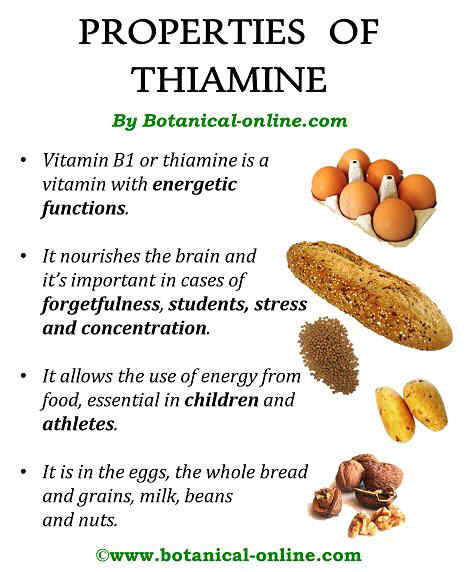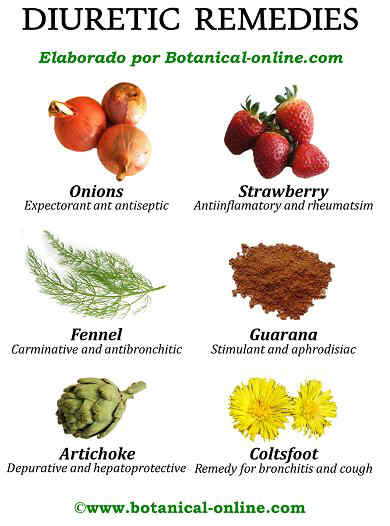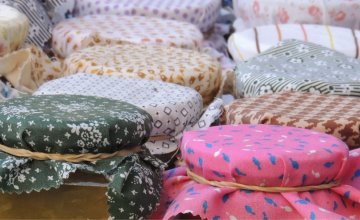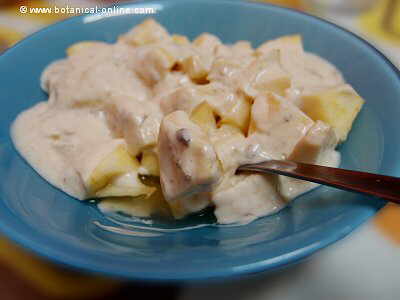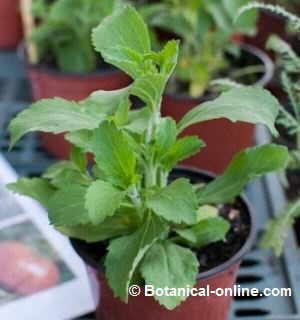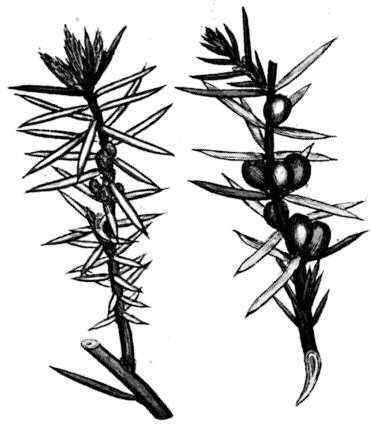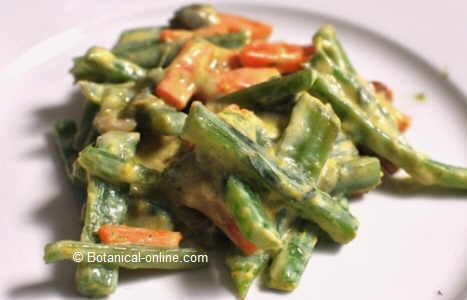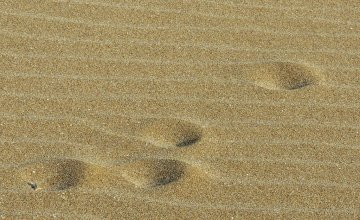Contents
- 1 Health benefits of thyme (Thymus vulgaris L.)
- 2 Medicinal properties of thyme
- 2.1 Thyme as a traditional medicinal plant
- 2.2 Thyme and its antibiotic properties
- 2.3 Thyme infusions for the respiratory system
- 2.4 Properties of thyme to increase defenses
- 2.5 Digestive properties of thyme
- 2.6 Digestive stimulant
- 2.7 Thyme as an emmenagogue and anti-inflammatory, for menstrual pain
- 2.8 Thyme for the treatment of anemia
- 2.9 Thyme for cerebral circulation and lack of memory
- 2.10 Other uses of thyme
- 2.11 Main curative properties of thyme
Health benefits of thyme (Thymus vulgaris L.)
Medicinal properties of thyme
Thyme as a traditional medicinal plant
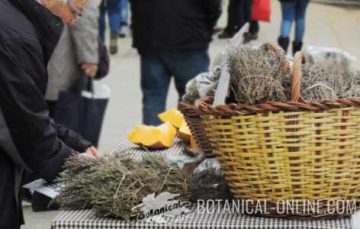
Thyme (Thymus vulgaris) is a plant that stands out for its fragrance. This odor is because it contains essential oil rich in thymol and carvacrol, two substances with antibiotic, expectorant and balsamic properties.
Traditionally, thyme has been used for the treatment of infectious diseases, especially those that affect the respiratory system. Because of its antiseptic power, thyme was also one of the plants used by the Egyptians to embalm the mummies and prevent rotting of the bodies.
Thyme and its antibiotic properties
Thyme is considered a natural antibiotic and one of the best disinfectant herbs, due to its enormous wealth in thymol and carvacrol.
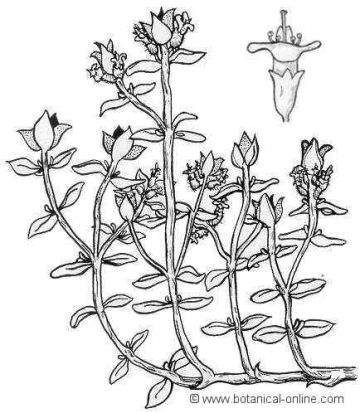
It is adequate to prevent the wounds from infecting themselves (Take three cups a day with the infusion of a teaspoon of dried flowers per cup) (You can take the syrup made with a tablespoon of thyme and two of chamomile in a liter of water until being reduced to ⅓. Sweeten and take 3 teaspoons a day).
These treatments may be useful as adjuncts to antibiotic treatment in digestive, respiratory, urinary and venereal diseases, such as gonorrhea, childhood diarrhea and colds.
Thyme infusions for the respiratory system
The doctor and English apothecary Nicholas Culpeper (1616-1654) in his book “Complete Herbal” says of the thyme as follows: “It is a noble strengthener of the lungs…. It purges the body of phlegm and is an excellent remedy for shortness of breath…. An ointment made of it takes away hot swellings and warts, helps the sciatica and dullness of sight, and takes away pains and hardness of the spleen, tis excellent for those that are troubled with the gout. It eases pains in the loins and hips. the herb taken any way inwardly, comforts the stomach much, and expels wind.”
Thyme is a powerful respiratory antiseptic, which eliminates germs and reduces the symptoms of the infections they produce, including fever or discomfort. In traditional medicine, thyme has been widely used for its antitussive, balsamic and mucolytic properties, in the treatment of bronchitis, cough, or for sore throat, asthma and loaded chest. (Take three cups a day with the infusion of one teaspoon of dried flowers per cup) (Essential oil: 2 to 3 diluted drops, up to 3 times a day Do not exceed the indicated dose)
It is a plant suitable for bronchitis and cough in children. (Take three cups a day with the infusion of one teaspoon of dried flowers per cup. Adjust the plant dose to age) (It is not recommended to use the essential oil in children)
Thyme is a powerful antiseptic. Eliminates germs and reduces the symptoms of these infections, including fever or discomfort. It can be used to relieve sore throat. Or when the chest is loaded. (Take three cups a day with the infusion of one teaspoon of dried flowers per cup) (You can take the syrup made with a tablespoon of thyme and two of chamomile in one quart of water until is reduced to 1 / 3. Sweeten and take 3 teaspoons a day.):
Thyme infusion is usually combined with other plants that complement its effect, such as cowslip (Primula veris), mallow (Malva sylvestris) or plantain (Plantago major), with expectorant and demulcent properties.
Properties of thyme to increase defenses
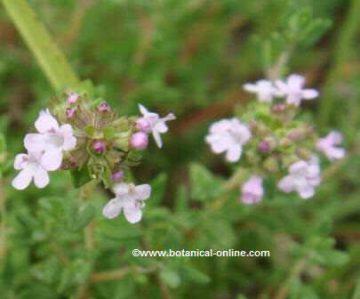
The properties of thyme to fight infections are enhanced by the property of this plant to increase the body’s natural defenses.
Thyme increases the activity of lymphocytes or defensive cells of the body, thus helping to fight off infections. (Take thyme in your dishes, eg in thyme soups) (Infusion of thyme, three cups a day of one teaspoon of dried flowers per cup).
Digestive properties of thyme
Thyme is a digestive plant. It has digestive, carminative and antiputrid properties. Thyme, used as an aromatic herb in meals or as an infusion after eating, favors digestion, prevents gastric and intestinal spasms (antispasmodic) and prevents the formation of putrid gases and retentions in the intestines, proving useful in case of Indigestion, flatulence, stomach pain or abdominal cramping.
The plant is a traditional remedy for. (Infusion of one teaspoon of flowering sums per cup of water, take 3 cups a day after meals) (Maceration of a handful of flowers in a white wine book.
Digestive stimulant
The essence of the plant opens the appetite, being very interesting in cases of anorexia or lack of appetite. For this purpose, many times the thyme is used in the preparation of different pickles and preserves that are served as starters, as is the case of olives (Add a sprig of flowers to any preparation)
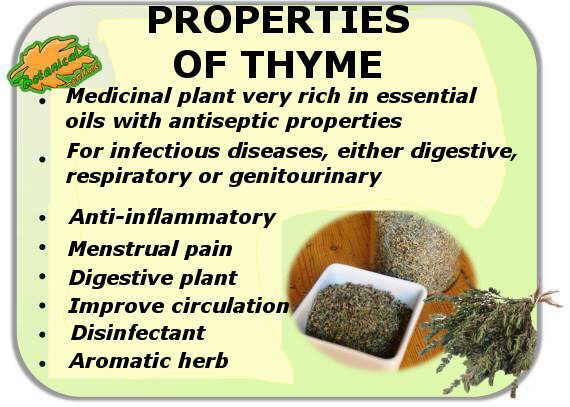
Main medicinal properties of thyme and its indications. It is a great disinfectant and natural antibiotic.
Thyme as an emmenagogue and anti-inflammatory, for menstrual pain
Thyme has anti-inflammatory, antispasmodic and analgesic properties that help relieve menstrual pain (dysmenorrhea).
Thyme preparations lightly reduce the pain of menstruation and facilitates emptying (emmenagogue use), avoiding the collateral problems that cause hormonal changes such as headache, stomach irritation, fluid retention and general irritability. (Infusion of one tablespoon of flowering tops.) 2 cups daily for one week before menstruation)
In a 2014 a study with 84 participants aged 19-23 was realized to test the efficacy of thyme compared with an anti-inflammatory drug (ibuprofen) in the treatment of menstrual pain. Three groups were divided: treated with ibuprofen (200 mg), with thyme (25 drops of essential oil diluted 2%) and with a placebo. Participants assessed their pain on a scale.
The results showed that thyme is as good as ibuprofen in the treatment of dysmenorrhea or menstrual pain.
The advantage of using thyme is that it lacks the side effects that drugs usually produce, such as headache, dizziness, drowsiness, diarrhea, loss of appetite, nausea, acne or vomiting.
Thyme for the treatment of anemia
Thyme is especially useful when anemia occurs with high hepcidin and when it may be related to infectious causes, given the role of this plant as a stimulant of the immune system and antiseptic. (Infusion of one teaspoon of dry plant, take 3 cups a day) (Infusion of one tablespoon of dried plant per cup of water, drink 3 cups a day, usually take in food)
In addition, it is a very rich in iron plant that can help increase its contribution in food, provided it is accompanied by a diet rich in iron to overcome the deficiency in the body.
Thyme for cerebral circulation and lack of memory
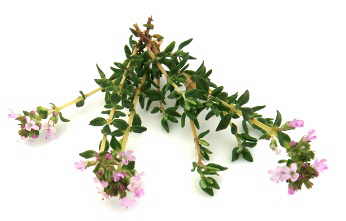
Thyme contains narigenin, a flavonoid that promotes circulation because of its antiaggregating properties. In addition, it is also rich in niacin (vitamin B3), a very important compound for the supply of glucose to the brain as well as in the preservation of blood vessels.
All this is interesting in the treatment of anomalies that are related to a lack of cerebral blood supply, such as memory loss, lack of concentration,… (Infusion of one tablespoon of dry plant per cup of water. Cups per day) These components together with rosmarinic acid make it also very suitable to decrease or avoid the symptoms of altitude sickness.
Other uses of thyme
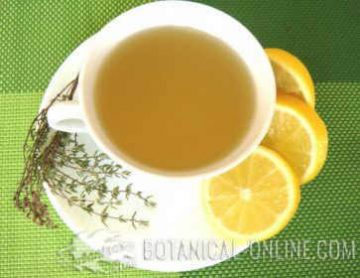
- Migraines or headache: Especially when this pain affects one side of the head. (Infusion of a teaspoon of the mixture of dry flowers of linden, thyme and melissa)
- Tranquilizer: Thyme is a natural relaxing and very soft sleeping pill. In situations of tiredness or general heaviness (Here the amino acid lysine is very important, which is essential in the body so that young people have an adequate growth and whose lack can cause, among other symptoms, the sensation of fatigue or general heaviness). A very light infusion, at the rate of one teaspoon per cup of water helps to fall asleep.
- Anti-rheumatic: Its richness in thymol makes it very suitable for the treatment of rheumatic diseases. (Infusion of a tablespoon of dry plant 3 cups daily) (External use: rub with massage oil with essential oil of thyme)
- Cancer: The possible properties of thyme against certain cancers, such as colon, breast and prostate cancer, are being investigated. It must be accompanied by a diet rich in fruits and vegetables, legumes, foods with omega 3, and avoid red meats, processed meats, tobacco and alcohol.
In addition, introducing this herb into the diet could help alleviate some adverse effects of radiation therapy and chemotherapy, such as mucositis.
- Food poisoning: The antibiotic properties of this plant are collected in the wisdom of traditional cooking. Thyme is an ingredient that spices most hot dishes, such as stews, casseroles, legumes, etc. Precisely, these types of dishes are those that, when kept for hours, are more susceptible to contain germs and microbes (they have the ideal temperature for the growth of bacteria). Therefore, the use of this aromatic herb, in addition to providing an exceptional aroma, protects against food poisoning.
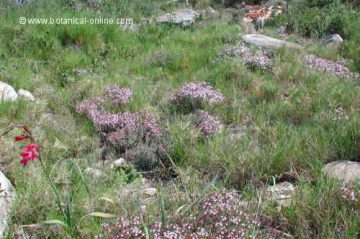
- Amenorrhea: For amenorrhea or lack of temporary menstruation (Infusion of a spoonful of flowering tops. 2 daily cups during one week before the menstruation)
- Sedative and soft somniferous: Being anxious or exhausted, feeling tired or unable to sleep, you can take a sedative bath, by adding in the water a good quantity of infusion made with thyme flowers. (Amino acid lysine, which can become crucial for the youth to attain a normal growth, is very suitable here. Lacking it may lead, among another symptoms, to become tired.) (A light infusion, in a proportion of a tea spoonful per cup of water can help to sleep better.)
- Memory loss: It contains naringenin. Furthermore, thyme is rich in niacin (vitamin B3), a compound important to the supply of glucose to the brain and in the preservation of blood vessels. (Infusion of a spoonful of dried plant per cup of water. Drink two cups a day)
- Altitude sickness: rosmarinic acid and the flavonoid naringenin give it the same properties. It is also rich in niacin (vitamin B3), a compound important to the supply of glucose to the brain and in the preservation of blood vessels. This is interesting in the treatment of abnormalities that are associated with a lack of cerebral blood flow (infusion of one teaspoon of dried plant per cup of water. Take a couple of cups a day a couple of days before leaving for the mountain or ascension
Main curative properties of thyme
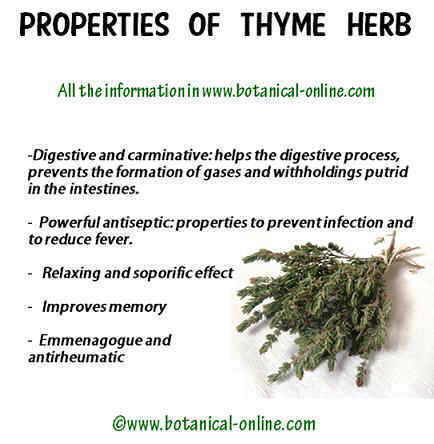
Related information:
Thyme herbal remedies for the skin
![]() More information on contraindications and thyme toxicity
More information on contraindications and thyme toxicity

